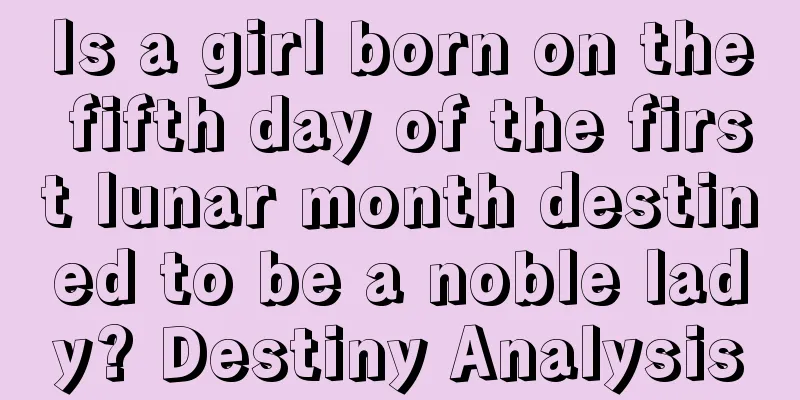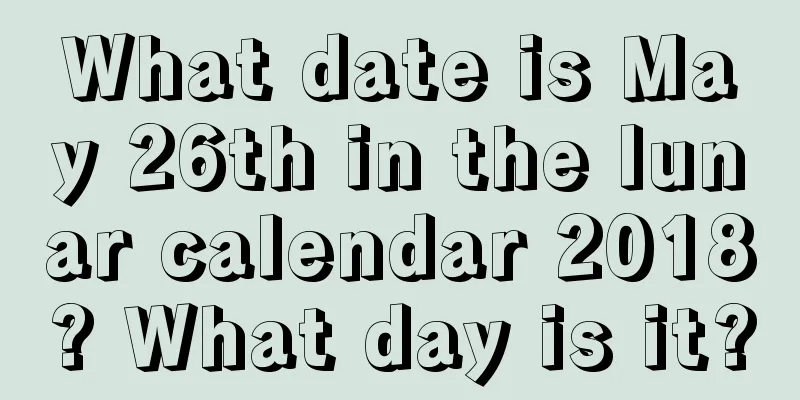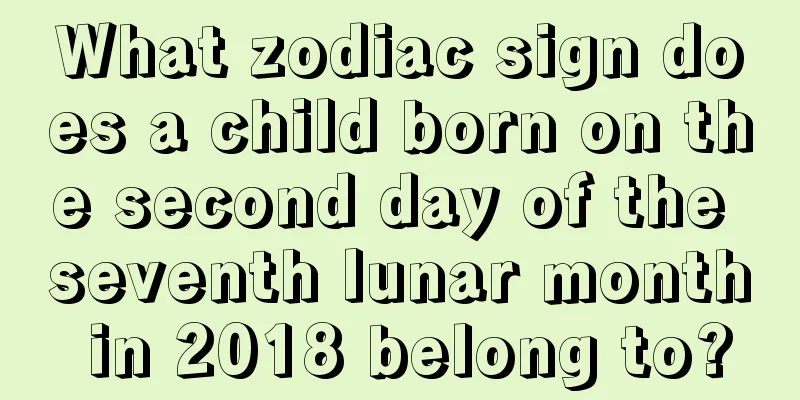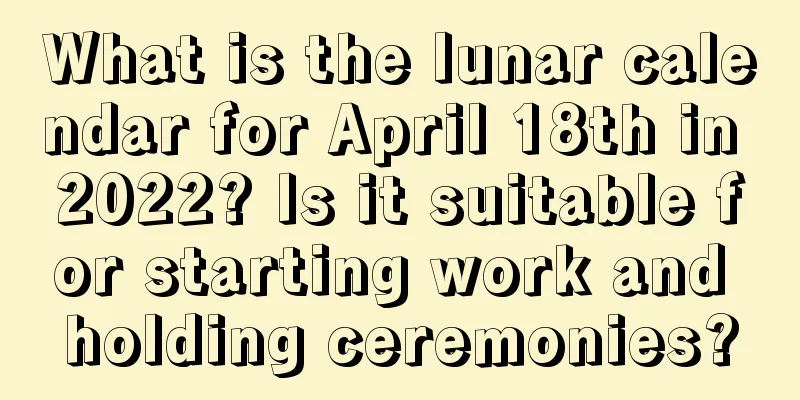Feng Shui Terminology (Part 2)

Introduction: We have introduced various professional Feng Shui terms for evil spirits before. Now let’s take a look at the Feng Shui terms that represent conflicts with each other.About Feng Shui Conflict——Door clash: two doors are directly opposite or partially opposite to each other, which of course includes other doors in the room that are directly opposite to the balcony door.Blade clash: This is more common in the living room. For example, if there is a porch at the entrance, and its thickness is about 10 cm, then the edge of this porch is a blade clash. Angle clash: It is the corner of the right-angle wall facing inward. Road clash: The end of the corridor facing the door is a road clash. A term for choosing a date for Feng Shui - Groundbreaking: When building a house, the time when the first shovel of soil is dug in the auspicious direction with a hoe on a selected day is called "groundbreaking". Laying the foundation: After the wall foundation is dug, the time when the first cornerstone is laid in the auspicious direction is called "laying the foundation". Erecting pillars and putting up roof beams: an auspicious day for erecting pillars and putting up roof beams. Anmen: Generally refers to the main door in the middle of the door direction. Build a stove: install a kitchen stove and move the kitchen stove. Entering the fire: generally refers to moving into a new house. In ancient times, there was a set of rituals for entering the fire. This custom still exists in small towns and rural areas. Migration: moving residence (old house). Repair: build houses, repair counters. Engagement: engagement (written engagement, excessive engagement, small engagement, secret engagement). Nacaiwenming: Proposing marriage. Marry: wedding ceremony. Crowning: a ceremony of adulthood. Setting up the bed: generally refers to making a new bed for a wedding or moving an old bed. Sacrifice: sacrifice to ancestors or worship gods in a temple. Pray: Ask God to come, set up reefs to make wishes and fulfill them. Securities transaction: the act of entering into a contract to buy or sell. Planting: sowing fruits and planting fruit grafting. Digging channels and wells: building sewers and ditches; digging wells means digging wells. Opening: a store opens for business or on the first day of the new year. Sweep the house: clean the house. Open warehouse: open the warehouse. Make beams: cut down trees to make roof beams. To decorate the walls: that is, to paint the walls. To level the roads: that is, to level the roads. Repairing houses and walls: the act of demolishing old houses and walls. Fengshui: Kan, which means a protruding ground, is a word that represents "topography"; Yu, which means studying the topography and landforms, focuses on the description of the landform. "Records of the Grand Historian" put geomancers and five elements scholars on the same level, which originally meant observing the celestial phenomena from above and observing the mountains, rivers and water conservancy from below. Later generations specifically referred to people who looked at Feng Shui as "geomancy masters", so "geomancy" is also called "feng shui" by the people. However, some people say that "geomancy" is not just about Feng Shui, but should be divided into five parts, namely: Luo Luo, daily lessons, Xuan Kong studies, burial methods and Xingjia. The twelve generals of the twelve months are also known as the twelve gods. They are: Yin is Gongcao, Mao is Taichong, Chen is Tiangang, Si is Taiyi, Wu is Shengguang, Wei is Xiaoji, Shen is Chuansheng, You is Congkui, Xu is Hekui, Hai is Dengming, Zi is Shenhou and Chou is Daji. Nine Dragons: Feng Shui compares the terrain of mountains and rivers to nine kinds of dragon postures, namely the returning dragon, the overseas dragon, the descending dragon, the living dragon, the flying dragon, the sleeping dragon, the hidden dragon, the soaring dragon, and the leading dragon. Eight winds: wind from eight directions: front, back, left, right, shoulders, and feet. Three Yangs Bring Good Luck: In the theory of Yin and Yang, October represents the Kun hexagram. The image of pure yin. November is the Fu hexagram, with one yang born below. The twelfth month is the Lin Gua, with two Yangs born below. The first month is the Tai hexagram, with three Yangs born below. As winter goes and spring comes, yin disappears and yang grows, which is a sign of good fortune and prosperity, so it is called "San Yang Kai Tai". Five Forces: Feng Shui divides continuous mountain forces into five types. Huang Miaoying's "Boshan Chapter" says: "A dragon starts from the north and faces south, which is the normal trend. A dragon starts from the west and makes a hole in the north and faces south, which is the side trend. A dragon goes up against the water and faces down with the water, which is the reverse trend. A dragon goes down with the water and faces up with the water, which is the normal trend. A dragon looks back at the ancestral mountain, which is the return trend." Five Sacrifices: Feng Shui refers to offering sacrifices to the door god, household god, well god, kitchen god, and Zhong Lei (the land god and the house god). Digging a living grave: before a person dies, find a place to build a grave. Parents Mountain: the towering mountain behind the cave. The secret is: "If you ask who your parents are, there is a mountain behind the cave. The front and back are mutually reinforcing and do not conflict with each other. Your children and grandchildren will not return empty-handed." Shaozu Mountain: the mountain near the cave. The secret says: "The mountain near the cave is called Shaozu Mountain. This mountain is crucial to good or bad luck. If it opens its wings, it is auspicious. If it is small and lonely, it will be weak." Fire land: The place where the house is prone to fire. Shuikou sand: mountains on both sides of the water mouth. If there is no sand at the water mouth, the water will rush out straight away, which is inauspicious. There should be densely packed mountains at the water mouth, like jagged teeth, with groups of cranes gathering together, overlapping and winding for dozens of miles, which is a good omen. It would be better if there were Huabiao, Hanmen, Compass and Beichen. This kind of terrain shows that the water is looking inward, looking back every step of the way, and is unwilling to leave. Water arrives at the bureau: the incoming water enters the Mingtang and approaches the cave. Beam pressing down on the head: It usually refers to a beam above the bed. When you lie on the bed, it looks like the beam is pressing down on your body. This is bad for your health, not only psychologically. From the perspective of modern physics, the airflow on both sides of the beam cannot pass through due to the obstruction of the beam and therefore rushes straight down along the beam. When people sleep, their internal Wei Qi is more susceptible to invasion by external evils (that is, they are more likely to catch a cold). Coupled with the direct airflow, it is equivalent to turning on the air conditioner or fan and blowing directly at the human body. After blowing for a long time, people will also experience paralysis and other abnormal symptoms. |
<<: Feng Shui Terminology: The Three Evils (Part 1)
>>: Feng Shui Terminology (Part 3)
Recommend
When to give birth during Christmas? Why is Christmas the peak time for pregnancy?
The first thing to do after getting pregnant is to...
Is it a good idea to open a new store on November 22, 2019, during the Xiaoxue period? How to calculate the Xiaoxue solar term?
Introduction: It is also necessary to choose an au...
Is it good for a boy to be born on February 29th of the lunar calendar in 2021? Boy's fate analysis
Different boys born at different times have differ...
Is the third day of February in 2022 a good day for Jingzhe? Is it an auspicious day for engagement?
The second month of the lunar calendar is the seco...
Is the 2021 Lantern Festival the first day of the lunar month? What zodiac sign is the 2021 Lantern Festival in conflict with?
Introduction: Different days unfold differently, a...
Is it suitable to pick up a car on March 16th of the lunar calendar in 2019?
March is the beautiful month of spring. We all kn...
What zodiac sign is the Big Snow solar term? Is it not suitable to move into the house the day before the Big Snow solar term in 2020?
Introduction: Different solar terms actually have ...
Is April 23rd of the lunar calendar 2021 an auspicious day? Is this day suitable for caesarean section?
Sophora japonica flowers bloom in April, so it is ...
Is it a good idea to pray for a child on New Year’s Eve, the 30th day of the twelfth lunar month in 2019?
Is it a good idea to pray for a child on New Year’...
Can I give birth to a girl on the 25th day of the twelfth lunar month in 2018? Is the hexagram a good sign?
A person's fortune in life can be good or bad,...
Is it possible to move house on September 12th of the lunar calendar in 2019? Is it suitable for moving?
September 12th of the lunar calendar in 2019 is n...
It is said that you cannot go back to your parents' home during the Dragon Boat Festival. Why do you have to avoid the Dragon Boat Festival?
Introduction: There are many sayings and rules abo...
The 15th day of the seventh lunar month in 2018 is a good day?
Every day has good and bad days, auspicious and i...
Is the 17th day of the first lunar month in 2022 suitable for opening a business? How to choose the location of a shop?
The first month of spring in the Xia calendar is t...
When does Spring begin in the Year of the Pig 2019? What are the customs of the Beginning of Spring?
The Beginning of Spring is the beginning of spring...









